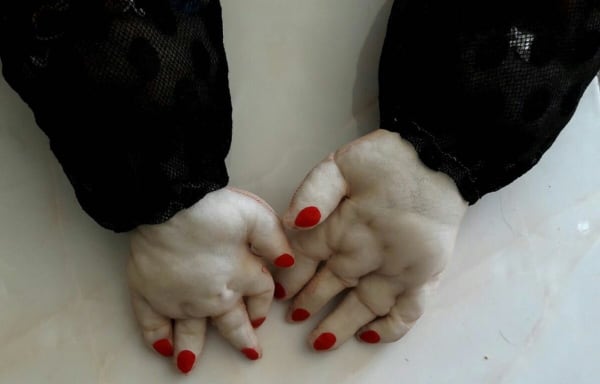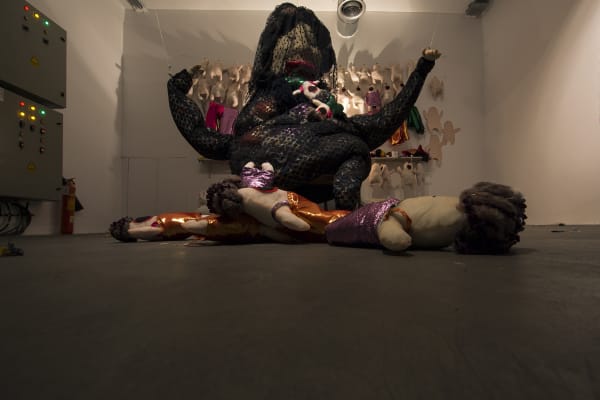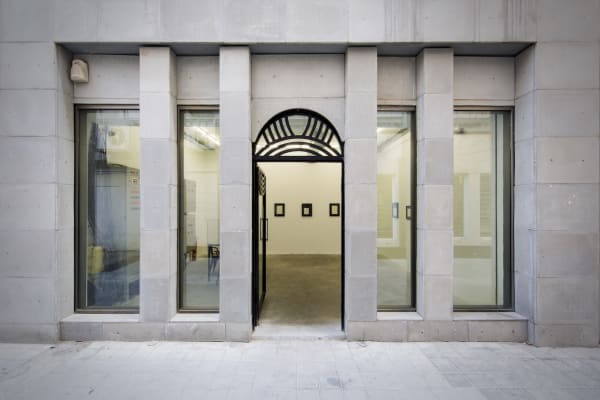Golrokh Nafisi | “Sorrowfat” (Ghambâd): Electric Room 11/50
-

"HORMOZ HEMATIAN & ASHKAN ZAHRAEI, Electric Room, art under high tension"
Anahita's Eye December 11, 2018Anahita's Eye has recently published an interview with Hormoz Hematian and Ashkan Zahraei discussing the 50-project long program of Electric Room (in EN, FR, DE)....Read more -

"Shifting Perspective from Art to Research"
Tosee Irani October 21, 2018Tosee Irani have recently published an article by Alireza Bakhshi Ostowar on the Electric Room (in Farsi). Click here to read it in full.Read more
“The coastal people of southern Iran, think of spirits and Jinns as wind and believe that that each wind carries a Jinn with it that goes into the body of human beings and possess them, making them ‘Havâi’ (lit. windy). They call the dangerous, evil and hurtful Jinn-Winds ‘Mazer’râti' (harmful). The ‘Havâ’ (wind) people believe that ones possessed by the wind lose their control and become ill with ‘Deev-Bâd’ (lit. demon wind), that is madness and insanity, turning into a vehicle for the wind. The Havâ people call them ‘Havâi’.”
from “Ah’le Havâ” (Havâ People), published in 1966, by Gholamhossein Sa’edi (1936-1985)
To Ma'soumeh Dadehbala
and her body, copied over
“Sorrowfat” (Ghambâd)
One — ‘Ghambâd’ is an term in Persian describing the inability to express our sorrow. A pain swelling in our body and throat, forcing silence. Based on a belief, Ghâmbâd is not limited to a mental state and goes beyond to possess one’s body: the swelling fo the body, or even an increase in body fat until one cannot move, and eventually death.
Ghâmbâds sometime become collective —when a society is formed and a dream possesses not only the minds but also the bodies of the people. The dream, not ever realizing, leaves out a collective swelling in the left-out bodies: historical Ghambâds.
Two — Popular art, interacting with a larger population, frequently becomes something beyond what its creators intended. Wandering around the streets, the bazar, and people’s homes, it transforms into a collective and shared dream, and at different times, collective happiness or sorrow add or reduces from it.
The popularity of a singer’s songs, sometimes creates an all-present phantom of them, makes their body larger and casts it like a shadow on public conditions. This presence and the grow of the singer’s phantom, simultaneously creates an empty body of them which will be filled by the ones repeating their songs: a multiplied body, a body of everyone’s.
Sad popular songs are also our collective catharsis —catharsis as an ending to fear, and a means towards more pity.
The expression of sadness, especially when expressed through “us”, makes it possible to pass the state of a collective Ghambâd by emptying ourselves of the sadness.
Three — Leila Kasra (1939 - 1989), also known by her pen-name, “Hediyeh”, was a songwriter who wrote the lyrics of over 60 songs for a number of pop singers. Eleven years of her 50-year-long life was spent fighting cancer. In one of her last interviews before her death, she talks about songs that she wrote before and after seventeen operations, in the ambulance or on the hospital bed. The direct expression of toil, and complaining of the ‘time’ (the unconquerable and ever-present factor that possess our lives) and an invitation to a collective madness, not thinking of tomorrow and living in a sensational present, are the main themes in her songs; all of which Hayedeh, one of the most prominent singers who performed Hediyeh’s songs, is known for.
“Heavens, your lightning is nulled,
you cannot disembody me,
I will live on by my songs.”
Four — “All of us, charged with intoxication, are chastised by the whip of admonition”
Ma'soumeh Dadehbala continues her urban life somewhere above us. Her voice is heard through the stereos of taxis in the scary traffic jams or windows of homes in quiet neighborhoods. Almost anyone knowing Farsi has heard her voice. It sometimes appears in the bodies presenter and often times as a means to fight personal Ghambâds, as a way to collectively mourn against the same sorrows.
Five — The gallery is a studio.
To show a body which is present all around, one is inspired by the thrill of repeating and murmuring whatever has been made before us and is repeated by us.
From Friday, October 6, 2017, for six days, a temporary studio will possess Electric Room (a Dastan:Outside Project). On Friday, Saturday, and Sunday, Ghâmbâd Studio will be prepared and the final project will be on view on Monday, Tuesday and Wednesday, October 9, 10 and 11, from 16:00 to 20:00.











